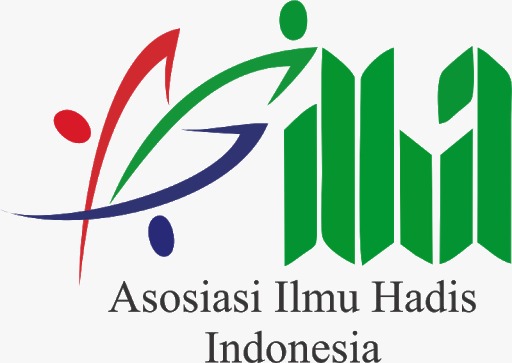Analisis Akurasi ChatGPT dalam Mengkaji Validitas Sanad dan Matan Hadis
DOI:
https://doi.org/10.32506/johs.v7i2-03Keywords:
ChatGPT, Hadith, Sanad, Matan, Validity of HadithAbstract
The emergence of ChatGPT as a new technology capable of addressing various religious issues, particularly in Hadith studies, presents new challenges for Hadith scholars in preserving the authenticity and sanctity of Hadith. This study aims to evaluate the accuracy of ChatGPT in assessing the validity of sanad and matan by comparing its analysis of five selected hadiths with the book Jawami’ul Kalim. Using a descriptive-analytical method, the research refers to the concept of "Rules for the Validity of Sanad Hadith" by Syuhudi Ismail. The findings reveal that while ChatGPT can provide preliminary analysis on the validity of hadiths, its evaluation is limited to the information available in its database. The analysis tends to be descriptive and lacks the depth found in Jawami’ul Kalim. ChatGPT's understanding of ulumul hadith is inconsistent, often producing incorrect or unverified answers, and it fails to cite reliable sources. In contrast, Jawami’ul Kalim offers more comprehensive and accurate takhrij with credible references. Therefore, while ChatGPT shows potential as a supportive tool in Hadith studies—especially in early-stage exploration—it cannot replace scholars or classical references. Expert guidance remains essential to ensure the accuracy and reliability of its assessments.
Downloads
References
Al-Baghdadi, A. B. A. ibn A. al-K. (n.d.). Al-Kifayah Fi Ma’rifat Ushul al-Riwayah. Dar al-Huda.
Al-Mubarakfuri, A. A.-’Ala M. A. bin A. (n.d.). Tuhfatul Ahwadzi Bi Syarhi Jami’ At-Tirmidzi. Dar al-Fikr.
Al, O. (2024). How ChatGPT and our foundation models are developed | OpenAI Help Cente. https://help.openai.com.
An-Nawawi, A. Z. Y. bin S. (2012). Al-Minhaj Bi Syarah Sahih Muslim al-Nawawi. Darus Sunnah.
Ar-Ramahurmuzi, A. M. al-H. ibn A. al-R. (2017). Al-Muhaddith al-Fasil Bayna Ar-Rawi Wa al-Wa’iy. al-Nashir al-Mutamayyiz.
Arifianto, M. L., Thoriquttyas, T., & Izzudin, I. F. (2023). “Inquiring Arabic-Islamic Debatable Terms to ChatGPT: Will It Take a Side? Digital Muslim Review, 1(1).
Brown, J. A. C. (2007). The Canonization of Al-Bukhārī and Muslim: The Formation and Function of the Sunnī Ḥadīth Canon, Islamic History and Civilization 69. Brill.
Cakir, F. (2023). Yapay Zekâ Ve Hadis Artificial Intelligence and Hadith. Şırnak Üniversitesi İlahiyat Fakültesi Dergisi, Şırnak University Journal of Divinity Faculty.
Çakir, F. (2023). Yapay Zekâ ve Hadis. Şırnak Üniversitesi İlahiyat Fakültesi Dergisi, 2.
CHATGPT. (n.d.). No Title. https://chatgpt.com/?model=auto
Ganadi, A. El. (2023). Bridging Islamic Knowledge and AI: Inquiring ChatGPT on Possible Categorizations for an Islamic Digital Library (Full Paper).
Goldzihe, I. (1889). Muhammedanische Studien.
Hosni, A., Ariffin, M. farhan, & Ishak, H. (2023). Isu Dan Cabaran Chatgpt Terhadap Pengajian Islam. Al-Turath:: Jurnal of Al-Qur’an an Al-Sunnah: The National University of Malaysia, 8(1).
Iriyanti, S. (2023). Studi Literatur: Pemanfaatan Teknologi Chat GPT Dalam Pendidikan. 1.
Islamweb.net. (n.d.). Software Gawamiul Kalim Vol. 4.5.
Khairulnazrin, M. (2021). Trend Kajian Hadis Berasaskan Teknologi Maklumat Dan Digital: Suatu Sorotan Literatur. Journal Hadis, 11(22).
Mahbub, S., & Suhaimi. (2021). Menelisik Autentisitas Sebuah Hadis: Studi Atas Kaidah Keshahihan Hadis Ditilik Dari Sanad Dan Matan. Al-Ulum Jurnal Pemikiran Dan Penelitian Ke Islaman, 8(2).
Maulana, L. (2016). Periodesasi Perkembangan Studi Hadits (Dari Tradisi Lisan/Tulisan Hingga Berbasis Digital). Esensia, 17(1).
Memarian, B., & Doleck, T. (2023). ChatGPT in Education: Methods, Potentials, and Limitations. Computers in Human Behavior: Artificial Humans, 1(2).
Muhammad, A. S., Qudsy, S. Z., & Mustautina, I. (2021). Digitalisasi Hadis Ala Pusat Kajian Hadis (PKH): Distribusi, Ciri, Dan Kontribusi Dalam Kajian Hadis Indonesia. Mashdar: Jurnal Studi Al-Qur’an Dan Hadis, 3(2).
Nasir, M. (2014). Kriteria Keshahihan Hadis Perpektif Syiah. Farabi, 11(2).
Nugraha, M. T., Fahmi, M. R., & Prakoso, I. A. (2023). Integrasi Tradisi Dan Teknologi Dalam Pembelajaran Fiqh Dengan Pemanfaatan Chatgpt. Innovative: Journal Of Social Science Research, 3(6).
Poola, I. (2023). Overcoming ChatGPTs Inaccuracies with Pre-Trained AI Prompt Engineering Sequencing Process. IJTES.
Prompting, L. (2024). Getting Started with ChatGPT: Setup and Basic Prompts.
Syuhudi, I. (2014). Kaidah Kesahihan Sanad Hadis (Telaah Kritis Dan Tinjauan Dengan Pendekatan Ilmu Sejarah. PT. Bulan Bintang.
Ummah, S. S. (2019). Digitalisasi Hadis Studi Hadis Di Era Digita. Diroyah : Jurnal Studi Ilmu Hadis, 4(1).
Downloads
Published
Issue
Section
License
Copyright (c) 2024 Yeni Amalia (Author)

This work is licensed under a Creative Commons Attribution-ShareAlike 4.0 International License.















